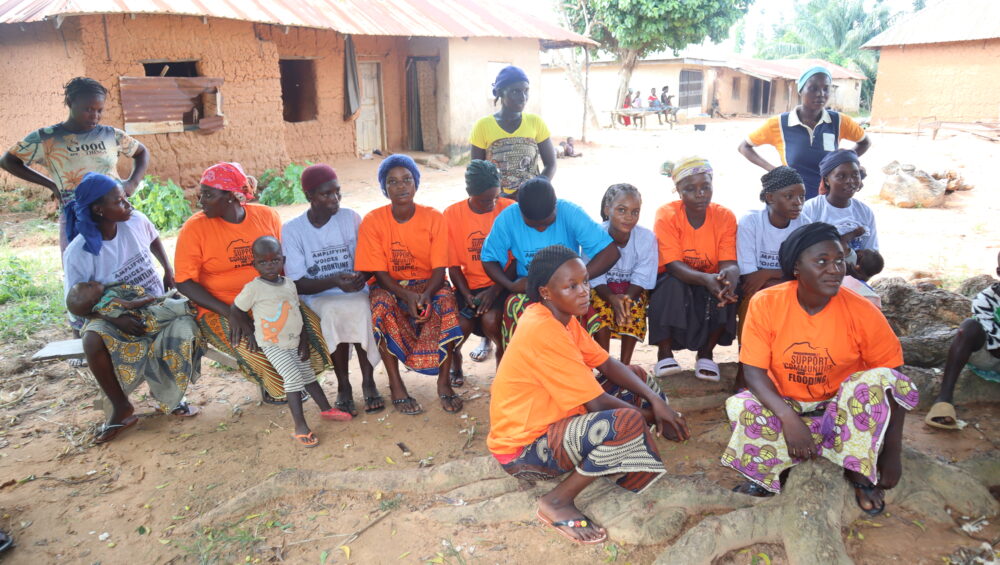In an endeavor to raise awareness among vulnerable communities that suffered from flooding in Nasarawa State, the Human and Environmental Development Agenda (HEDA Resource Centre) and the African Activists for Climate Change (AACJ) Project, in collaboration with OXFAM, launched a community outreach program aimed at amplifying the voices of climate-affected communities. This initiative reached Lambaga community in Lafia Local Government Area of the state.
“Amplifying the voices of climate-affected communities” is an NGO project dedicated to empowering marginalized communities in Nigeria. This project was conducted in partnership with OXFAM and received support from the Netherlands Ministry of Foreign Affairs.
The NGOs visited Lambaga community to educate its residents about the far-reaching effects of climate change, especially considering the limited access to climate-related information in the area.
Mr. Sulaimon Arigbabu, the Executive Secretary of the HEDA Resource Centre, shared insights with journalists after the awareness campaign. He explained that their presence in Lambaga community was part of their outreach program under the African Activists for Climate Change Justice project, a collaborative initiative by African civil society organizations (CSOs) aimed at advocating for climate justice on the African continent.
Arigbabu emphasized that the program focused on amplifying the concerns of frontline communities like Lambuga, which had experienced significant flooding. Lambuga is an agrarian community that cultivates rice, maize, cassava, and other crops.
He further appealed to governments at all levels to come to the aid of the community, which had suffered greatly from previous floods.
During the visit, Mrs. Esther Friday, a farmer from Lambaga community and a mother of four children, recounted the impact of the 2022/2023 floods, which occurred in April and September. She explained that she could barely provide two meals a day for her children due to the consequences of climate change.
Esther Friday lamented, “I lost my rice farm, my groundnut farm, cassava farm, and my house during the last flood. I’m calling on the government to come to my aid.”
Another Lambuga resident interviewed during the visit, Mrs. Mary Loya, highlighted the community’s lack of access to clean drinking water, as they relied on a nearby stream. She expressed the need for the government to provide a motorized borehole to ensure access to safe drinking water.
Mr. Joshua Jonathan, the National President of the Small Scale Agro Producer Association of Nigeria and a participant in the visit, stressed his commitment to anything affecting small-scale farmers. He noted that a majority of Lambuga’s residents were farmers who felt the impact of climate change. Their objective was to educate these farmers about climate change and its effects.
Mr. Jonathan also emphasized the significant impact of climate change on small farmers and their determination to create awareness among Lambuga’s residents about these effects.






